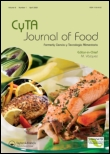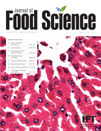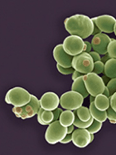
International Food Research Journal
Scope & Guideline
Elevating Food Science with Quality Insights
Introduction
Aims and Scopes
- Food Safety and Quality Assessment:
Research focusing on the safety and quality of food products, including microbiological assessments, contamination risks, and the effectiveness of food safety regulations. - Nutritional and Functional Properties of Foods:
Studies that explore the nutritional composition, health benefits, and functional properties of various food ingredients, including bioactive compounds, antioxidants, and dietary fibers. - Food Processing and Preservation Techniques:
Innovative methodologies for food processing and preservation, including the application of new technologies such as nanotechnology, high-pressure processing, and modified atmosphere packaging. - Fermentation and Probiotics:
Research into the processes of fermentation, including the development of probiotic foods and the characterization of microbial communities in fermented products. - Natural Products and Food Additives:
Exploration of natural extracts and compounds for their potential application as food additives, preservatives, or functional ingredients to enhance food quality and safety. - Food Innovation and Product Development:
Studies focused on the development of new food products or formulations, incorporating alternative ingredients and innovative processing techniques to meet consumer demands.
Trending and Emerging
- Plant-Based Foods and Alternatives:
There is a notable increase in research focusing on plant-based foods, including the development of alternatives to meat and dairy products that cater to the growing demand for vegetarian and vegan options. - Health Benefits of Functional Foods:
A rising interest in the health benefits of functional foods is evident, with numerous studies investigating the nutritional and therapeutic potentials of various food components. - Sustainable Food Practices:
Research addressing sustainability in food production and processing is gaining momentum, including studies on waste reduction, eco-friendly packaging, and sustainable sourcing of ingredients. - Food Biotechnology:
Emerging themes in food biotechnology, including genetically modified organisms (GMOs) and bioengineering, are increasingly prominent, reflecting advancements in food technology. - Microbiome and Gut Health:
There is a growing focus on the relationship between food, gut microbiota, and overall health, particularly in the context of probiotics and their effects on human health.
Declining or Waning
- Traditional Food Practices:
There appears to be a reduced focus on traditional food practices and indigenous methods of food preparation, possibly due to globalization and the rise of modern food processing techniques. - Conventional Food Safety Methods:
Research on conventional methods of food safety and preservation is becoming less prevalent as newer technologies and methodologies gain traction, offering more effective solutions. - Animal-Based Food Products:
As plant-based diets and alternative protein sources gain popularity, research focusing on traditional animal-based food products may be declining, reflecting broader dietary trends.
Similar Journals

npj Science of Food
Unleashing Knowledge for Healthier Food Choicesnpj Science of Food is a premier journal published by NATURE PORTFOLIO, focusing on groundbreaking research in the fields of Food Science and Public Health. Since its inception in 2017, this Open Access journal has rapidly established itself as a vital resource for researchers and professionals alike, contributing significantly to advancements in scientific knowledge related to food safety, sustainability, and nutritional health. With an impressive Q1 ranking in both Food Science and Public Health for 2023, and a Scopus ranking placing it in the top 12% of related fields, the journal serves as a critical platform for disseminating high-quality research. Situated in the United Kingdom and operating with a global perspective, npj Science of Food encourages the publication of innovative and interdisciplinary studies aimed at addressing real-world challenges in food systems and human well-being. Researchers, professionals, and students looking to stay at the forefront of food science can access a wealth of knowledge and insights through this impactful journal.

CyTA-Journal of Food
Connecting researchers to enhance global food systems.CyTA-Journal of Food is a prestigious academic journal published by TAYLOR & FRANCIS LTD, dedicated to advancing the field of food science and technology through the dissemination of innovative research and practical knowledge. With an ISSN of 1947-6337 and an E-ISSN of 1947-6345, this journal stands out with its strong impact factor and is currently placed in the Q2 quartile across multiple categories, including Chemical Engineering, Chemistry, and Food Science, making it a vital resource for researchers and professionals alike. The journal has been an integral part of the academic community since its inception in 2009, and continues to publish cutting-edge articles through to 2024. Its alignment with Scopus ranks further signifies its influence, notably achieving 67th percentile in Industrial and Manufacturing Engineering. As an Open Access journal, it ensures widespread accessibility to its valuable content, promoting collaboration and knowledge sharing among scientists, engineers, and students dedicated to enhancing food safety, quality, and sustainability.

FOOD TECHNOLOGY AND BIOTECHNOLOGY
Empowering Researchers to Shape the Future of FoodFOOD TECHNOLOGY AND BIOTECHNOLOGY is a distinguished peer-reviewed journal published by the Faculty of Food Technology and Biotechnology, University of Zagreb, Croatia. Since its inception in 1993, this Open Access journal has become a crucial platform for disseminating innovative research in the fields of food science, biotechnology, and chemical engineering. With a commendable impact factor and consistent Q2 and Q3 rankings across multiple categories—including Biotechnology, Food Science, and Industrial Engineering—this journal not only fosters academic discussions but also addresses real-world challenges in food production, safety, and sustainability. As it converges its thematic scope from 1996 to 2024, FOOD TECHNOLOGY AND BIOTECHNOLOGY remains committed to advancing knowledge through high-quality research and interdisciplinary collaboration, making it an essential resource for researchers, professionals, and students seeking to stay at the forefront of food innovation and biotechnology.

Food Production Processing and Nutrition
Advancing the intersection of food science and nutrition.Food Production Processing and Nutrition, published by SpringerNature, stands at the forefront of advancing knowledge in the vibrant fields of food science, nutrition, and public health. This esteemed Open Access journal, operational since 2019, plays a pivotal role in disseminating breakthrough research that intersects food production processes with nutritional insights, making it an invaluable resource for researchers, professionals, and students alike. With a commendable 2023 impact factor reflecting its robust scholarly contributions — Q1 in Food Science and Q2 in both Nutrition and Dietetics and Public Health, Environmental and Occupational Health — the journal not only emphasizes the importance of innovative food processing methods but also addresses pressing nutritional challenges faced globally. Located in the United Kingdom, it claims an impressive Scopus ranking, with a notable percentile standing across various categorical metrics. As such, Food Production Processing and Nutrition is essential for anyone aiming to deepen their understanding of how food systems impact public health through effective processing and nutritional strategies.

JOURNAL OF FOOD SCIENCE AND TECHNOLOGY-MYSORE
Advancing the Frontiers of Food Science and TechnologyJOURNAL OF FOOD SCIENCE AND TECHNOLOGY-MYSORE, published by SPRINGER INDIA, is a distinguished peer-reviewed journal that has been contributing to the ever-evolving field of food science since its inception in 1974. With an ISSN of 0022-1155 and E-ISSN 0975-8402, this journal holds a commendable position in the Q2 category for Food Science, as per the 2023 metrics, and ranks #58 out of 389 in Scopus's Agricultural and Biological Sciences sector, achieving an impressive 85th percentile. The journal publishes high-quality research articles, reviews, and case studies that cover a wide array of topics, from food preservation to innovative technologies in food processing. Although it is not an open-access journal, it endeavors to disseminate essential knowledge and research strategies that advance food science and benefit both industry professionals and academia. The geographical reach of the journal, alongside its rigorous editorial standards, solidifies its stature as a pivotal resource for researchers, professionals, and students dedicated to the enhancement of food science practices and technologies.

JOURNAL OF FOOD SCIENCE
Championing the Quest for Food Integrity and SafetyJOURNAL OF FOOD SCIENCE, published by Wiley, is a premier journal dedicated to advancing the field of food science, bridging the gap between fundamental research and practical application. With an impressive impact factor reflecting its authoritative status, the journal is ranked in the Q1 quartile for Food Science in 2023 and boasts a Scopus ranking of #71 out of 389, placing it in the 81st percentile within Agricultural and Biological Sciences. First launched in 1936, the journal continues to serve as an essential platform for researchers, professionals, and students to disseminate innovative studies and reviews that address critical issues in food quality, safety, and technology. While not currently offering open access, its rigorous peer-review process ensures the dissemination of high-quality and impactful research. Researchers engaged in the vital disciplines of food science will find this journal indispensable for keeping abreast of cutting-edge developments in the field.

Journal of Future Foods
Connecting researchers to shape the future of food.Welcome to the Journal of Future Foods, a prominent peer-reviewed publication dedicated to advancing knowledge and innovation within the realms of Agricultural and Biological Sciences, Food Science, and Nutrition and Dietetics. Published by KEAI PUBLISHING LTD in China, this journal has rapidly achieved a distinguished reputation, reflected in its impressive Q1 category ranking for both Agricultural and Biological Sciences and Food Science, along with a strong standing in Nutrition and Dietetics. The journal, which spans the period from 2021 to 2025, is committed to fostering interdisciplinary research that addresses the challenges and opportunities presented by the future of food. With a focus on open access, the Journal of Future Foods aims to disseminate crucial findings and foster collaborative dialogue among researchers, professionals, and students alike. By submitting your work, you not only contribute to cutting-edge advancements in the field but also join a vibrant community engaged in redefining the future of food systems.

Ukrainian Food Journal
Nurturing a community dedicated to food innovation.Ukrainian Food Journal is an esteemed open-access journal dedicated to advancing the field of food science and biochemistry. Established in 2012 and published by the National University of Food Technologies in Ukraine, the journal serves as a vital platform for researchers and professionals to disseminate their findings on food technology, safety, and nutritional biochemistry. With an ISSN of 2304-974X and E-ISSN 2313-5891, it offers a wealth of knowledge to its readers, promoting innovation and collaboration within the industry. While currently categorized within the Q4 quartile of biochemistry and the Q3 quartile of food science, the journal is progressively gaining recognition, reflecting a commitment to quality research in a competitive field. The journal is indexed in Scopus, ranking #271 in Food Science and #376 in Biochemistry, underscoring its relevance and contribution to agricultural and biological sciences. The Ukrainian Food Journal not only enriches the academic community with its open-access model but also aims to foster dialogue among researchers, professionals, and students dedicated to improving food systems and nutrition. It operates from its headquarters in Kyiv, offering a hub for creativity and advancement in food-related research.

Journal of Food and Nutrition Research
Bridging Research and Real-World Nutrition SolutionsJournal of Food and Nutrition Research, published by the VUP FOOD RESEARCH INST in Bratislava, Slovakia, serves as a vital platform for disseminating cutting-edge research in the fields of food science and nutrition. With an ISSN of 1336-8672 and an E-ISSN of 1338-4260, this journal emphasizes the importance of interdisciplinary approaches to address contemporary challenges related to food quality, dietary practices, and nutritional health. Notably recognized in the 2023 Scopus rankings, the journal is classified in Q3 quartiles for both Food Science and Nutrition & Dietetics, providing a forum for researchers aiming to enhance knowledge and practices within these domains. Those engaged in academia and industry will find the journal invaluable for its comprehensive scope, which covers novel food technologies, nutrition interventions, and the implications of dietary behaviors. Though not open access, the journal is dedicated to enriching the academic conversation and contributing to advancements in public health and nutrition policies.

Annual Review of Food Science and Technology
Bridging Research and Application in Food ScienceThe Annual Review of Food Science and Technology, published by ANNUAL REVIEWS, is an esteemed journal dedicated to advancing the knowledge within the field of food science. With an impressive Q1 ranking in the Food Science category, and ranking as #6 out of 389 in the Scopus Agricultural and Biological Sciences category, the journal serves as a vital resource for researchers, professionals, and students. This publication encapsulates comprehensive reviews and cutting-edge research, helping to bridge the gap between research and practical application. Though it does not offer Open Access, it provides valuable insights into various aspects of food science from 2010 to 2024, ensuring that its readership stays at the forefront of emerging trends and innovations. The journal's focus on high-quality, peer-reviewed articles makes it a critical platform for scholars looking to deepen their understanding and contribute to this rapidly evolving field.